News
-
 Earth
EarthDeadly temperatures expected to arrive later this century are already here
Temperatures near humans’ physiological limit have doubled in frequency since 1979, exposing millions of people to dangerously hot and humid conditions.
-
 Physics
PhysicsPhysicists have found a way to foil a classic oobleck science trick
Cornstarch and water solidifies under impact, but a new technique can make it remain a liquid.
-
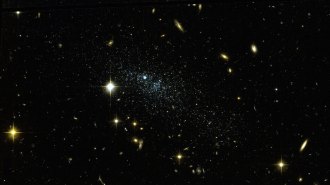 Space
SpaceHow tiny ‘dead’ galaxies get their groove back and make stars again
Computer simulations explain how puny galaxies can sustain star formation: Gas falls into them and billions of years later begins to create new stars.
By Ken Croswell -
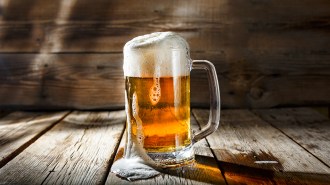 Archaeology
ArchaeologyBrewing beer may be an older craft than we realized in some places
Newly discovered microscopic signatures of malting could help archaeologists detect traces of ancient beer.
-
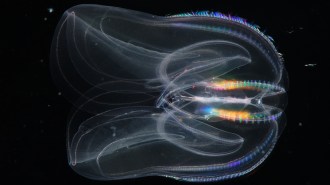 Animals
AnimalsSome comb jellies cannibalize their young when food is scarce
Invasive warty comb jellies feast on their larvae after massive population booms in the summer deplete their prey from waters off of Germany.
-
 Neuroscience
NeuroscienceA game based on Simon shows how people mentally rehearse new information
Signs of learning echo through people’s resting brains.
-
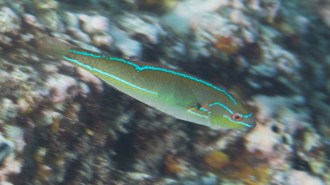 Ecosystems
EcosystemsWarming water can create a tropical ecosystem, but a fragile one
Tropical fish in a power plant’s warm discharge disappeared with the plant’s shutdown, giving insight into ecosystems’ reaction to temperature shifts.
By Jake Buehler -
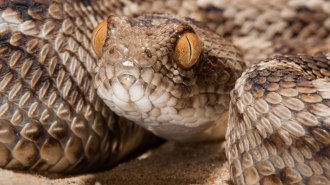 Health & Medicine
Health & MedicineA pill for heavy metal poisoning may also save snakebite victims
In mice, an oral medication delayed or even prevented death after a lethal dose of viper venom, a new study finds.
-
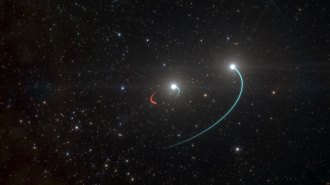 Space
SpaceThe closest black hole to Earth may have been spotted 1,000 light-years away
What appears to be the closest black hole to the solar system shares orbits with two massive stars, a new study finds.
-
 Life
LifeWhy otters ‘juggle’ rocks is still a mystery
Shuffling pebbles really fast looks as if it should boost otters’ dexterity, but a new study didn’t find a link.
By Susan Milius -
 Psychology
PsychologyA simple exercise on belonging helps black college students years later
Black college freshmen who did a one-hour training on belonging reported higher professional and personal satisfaction years later.
By Sujata Gupta -
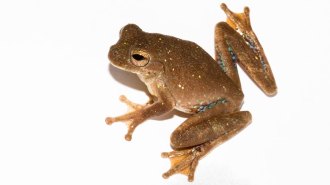 Animals
AnimalsPug-nosed tree frogs use an auditory trick to evade predators and woo mates
A new study finds that some tree frogs exploit what’s known as the precedence effect to get females attention safely.
By Pratik Pawar